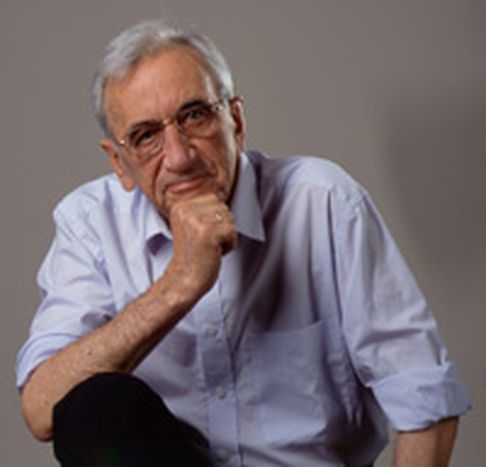
“Crises help the EU move forward”
Published on
Translation by:
 akasemi newsome
akasemi newsome
One of Poland’s best known personalities is the politician, writer and journalist Tadeusz Mazowiecki. In an interview with cafebabel.com, he considers the effect of Polish accession and how Europe can move forward
Born in Plock in April 1927, Tadeusz Mazowiecki became an adviser to the Solidarity trade union in 1980 before becoming Poland’s first non-communist prime minister in post-war history. He retired from this position in 1990, and in 1992 became the special rapporteur for the UNHCR and its representative in former Yugoslavia. Interview.
cafebabel: Mr Mazowiecki, What lies ahead for Europe?
Tadeusz Mazowiecki: It is easy to criticise, but the EU is an important achievement. A lot has had to change in Europe for such a partnership to be made possible. What do I mean by this? Firstly, there are no longer conflicts between states. Secondly, certain preconditions for EU membership have to be upheld, like democracy, human rights and protection for minority groups. And finally, we have reached a high level of economic integration.
Of course, it is disappointing that this process can often prove laborious and it can also encounter problems. However, we have to recognise how much has already been achieved. I would look at it this way: compare where we are now with where we were. Historically, Europe has swung from one crisis to the next and was the battlefields of two World Wars. Looking back today, we have come so far. Europe has definitely changed.
cafebabel: A year and a half has passed since Polish accession. What is your take on Poland’s role in the EU?
Tadeusz Mazowiecki: Poland’s role is equivalent to that of every other member state. It’s not just about starting to feel at home in the EU, but taking the necessary steps to eliminate the distinctions between ‘old’ and ‘new’ member states. I think that this will work itself out with time. ‘Old’ and ‘new’ states will not naturally take counter-positions on every issue. However, at present, the ‘new’ states have a common interest, for the simple reason that their economic development lags behind that of the more established states.
I have recently noticed that certain issues have taken centre stage in EU politics. For one, how much weight should be given to a common foreign policy, or to a common energy policy? Recently we have become more aware of the possible dangers, we know it is not a good idea for each EU member state to make its energy policy autonomously. The need for cooperation on this issue became even clearer with the crisis between Russia and the Ukraine. Poland’s role is to seize the opportunity to put such ideas into practice.
cafebabel: How do other EU citizens perceive the Polish? Are they still seen as cheap plumbers who steal jobs?
Tadeusz Mazowiecki: I don’t know that plumbers are viewed in such a negative light. There have been times where people have needed plumbers. Others just see migrant workers as competition. I think each country has a different point of view and one must ask the people what they think. I can speak for the other side and say that the Polish have a positive image of the EU. Since structural aid for agriculture has arrived, you can really see the difference in rural areas. This investment has helped to calm fears about accession ruining things, and consequently, European integration is seen as positive. Firstly, the younger generation changed their minds, then the older generations followed suit. At the same time, you can’t threaten the people with tales of an impending disaster that can only be solved with the panacea of joining the EU.
cafebabel: How do you assess the budget disputes currently affecting the EU?
Tadeusz Mazowiecki: European projects have always bee characterised by the presence of national interests, as much as they are by inter-state solidarity. Such solidarity has never been absolute, but has always been there. Budgetary wrangling has always led to the formation of blocks of member states. Whoever thinks that such coalitions can be easily dissolved has an idealistic and naïve understanding of EU politics. The fact that it is possible to overcome individual differences in order to find a consensus without reaching a permanent budgetary impasse is quite an achievement. This is part of the EU process. Crises help the EU move forward.
cafebabel: Do you think that Romania, Bulgaria and Turkey are ready for membership? Do you think that the EU is ready for them?
Tadeusz Mazowiecki: There is no generic answer to such a question. You have to take the specific political, economic and cultural idiosyncrasies of each candidate country into account. The EU is ready for the accession of new members, provided that they have fulfilled the membership criteria. In the case of Turkey, this will take a while. We also have to consider where Europe’s borders will be. It is difficult to say just how much further EU enlargement can go, we cannot include everyone.
cafebabel: Finally, what do you think about a European media?
Tadeusz Mazowiecki: It is a great idea. Every exchange has its advantages – especially one which allows a diversity of views and participants. Best of luck in making it happen!
Translated from Droga Polski do Unii Europejskiej


